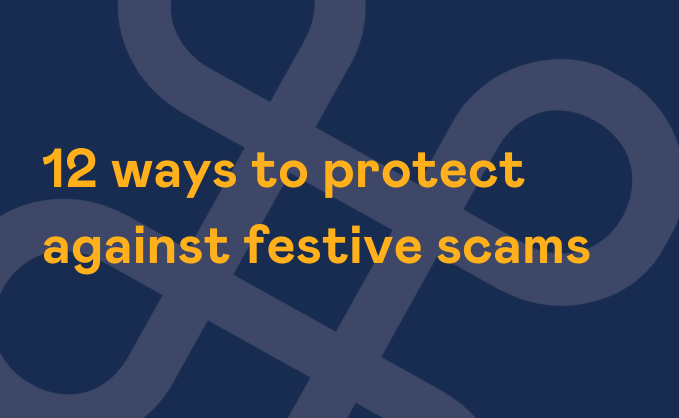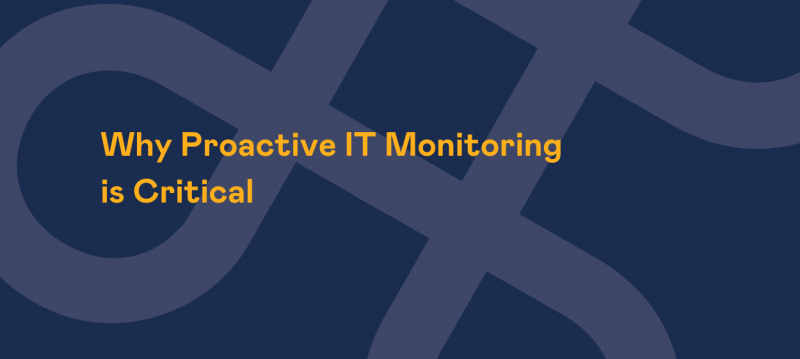As most of us are winding down for Christmas and wrapping up the last of our shopping, cybercriminals are sat ready and waiting to take advantage of your festive cheer.
For cybercriminals, the holiday season is not a time for a glass of wine (or two) and catch up with friends. Oh no, it’s a time of opportunity. A time where the number of people who are online shopping soars and where vigilance from the online consumer plummets. It’s a perfect storm for cyber attacks - more targets and less care paid whilst shopping online.
Why is that the case? Maybe it’s down to shopping whilst slightly under the influence, trying to do everything in such a hurry or the assumption that surely nobody could do such a thing at Christmas. Well, unfortunately, they can and will.
Christmas and the sales that follow is prime time for malicious online activity. From classic phishing traps to scams that are altogether more complex, the amount of people who succumb to cyber attacks over Christmas is crazy.
BUT…there’s plenty that you can do to keep yourself safe online this Christmas and into the New Year:
- Stay vigilant against phishing attacks: Be alert for phishing emails that mimic authentic messages from well-known brands. Avoid clicking on links in unsolicited emails and be wary of email attachments. Refrain from disclosing sensitive information via email.
- Research unfamiliar retailers: Steer clear of online shopping scams, prefer established retailers you already know and trust. If you find an unfamiliar retailer offering a unique item, consult Consumer Reports for guidance on researching the retailer. Look for reviews!!
- Check website security: Look for indications that your information will be encrypted on online shopping websites. This is typically indicated by a URL beginning with "https:" (as opposed to "http:") and a padlock icon. Some attackers may deceive website visitors by displaying a fake padlock icon.
- Use a credit cards: Consider using credit cards for your purchases instead of debit cards. Credit cards can offer legal protections limiting your liability for fraudulent charges. It's even advisable to use a credit card when making payments through Apple Pay, PayPal, and Google Wallet.
- Choose shopping apps wisely: Exercise caution with mobile shopping apps. Some may be fraudulent, while others may collect excessive personal information. Prioritize apps that disclose their data usage policies and security measures.
- Avoid excessive data sharing: Retailers do not typically require your date of birth or personal info for standard transactions. However, if fraudsters obtain your credit card number along with some personal information, they could significantly damage your identity and credit rating. Whenever possible, provide the least amount of personal data required.
- Purchase gift cards from reputable sources: Buy gift cards exclusively from trusted sources and well-known brands, particularly when shopping online. When buying a gift card in-store, inspect the packaging for signs of tampering or PIN exposure.
- Deliver gifts Securely: Consider having your packages delivered to a secure location, such as your workplace, or ask a neighbour to take deliveries if you won't be home. Request a signature on delivery or use nearby shops for package collection. When sending a gift card via mail, choose a trackable delivery method. If sending it digitally, ensure it's password protected.
- Review privacy policies: Before divulging personal or financial information, review a website's privacy policy to understand how your data will be stored and used. The absence of a privacy policy should raise red flags and indicate potential scam activity.
- Verify the sender before opening e-cards: Ensure the sender's name is visible, exercise caution if asked to provide personal information to access the card, and avoid opening suspicious emails, especially those containing attachments that could download viruses.
- Install and update antivirus software: Run firewall, antivirus, and anti-spyware software on your devices, including computers, tablets, and smartphones. Regularly check for and install software updates, and conduct virus scans at regular intervals.
- Monitor your online statements: Maintain a record of your purchases and confirmation pages, comparing them with your bank statements. If discrepancies arise, report them immediately. During the holiday season, regularly check your electronic statements for fraudulent charges on credit cards, debit cards, and accounts like PayPal.
Follow all these tips and you’ll be sure to have a very Merry Christmas and a Happy New Year indeed – hopefully whilst bagging a good bargain or two in the sales as well!!
For more information on how you can protect yourself from cyber attacks throughout the year, please click here.



